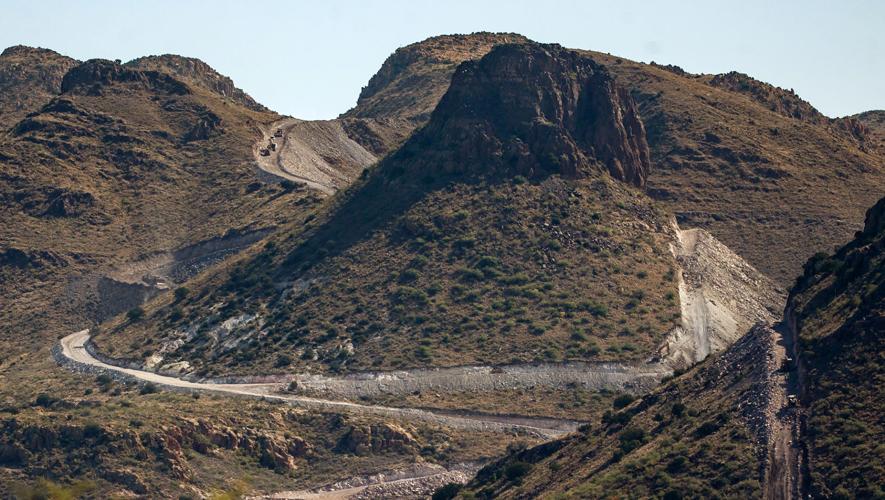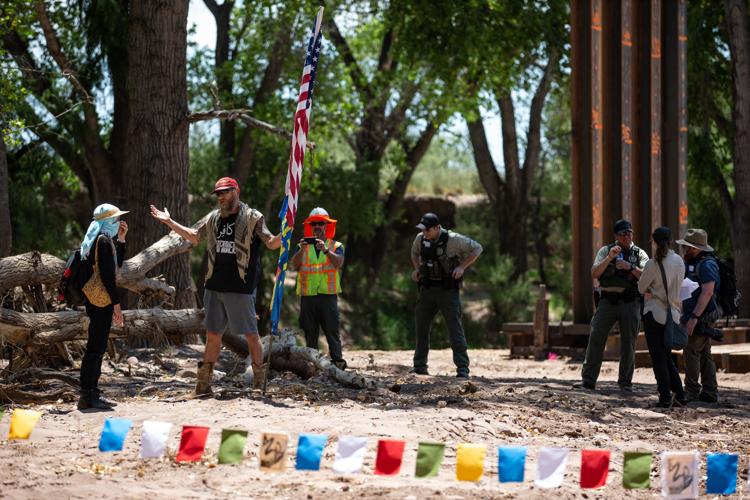PHOENIX — Attorney General Mark Brnovich is hoping to use federal environmental laws to force the Biden administration to resume construction of the border wall.
In a new lawsuit, Brnovich said the National Environmental Policy Act requires the federal government to conduct a study to determine the effects of any change in policy. But he said the president, in halting wall construction and scrapping the “remain in Mexico” policy of the Trump administration in handling asylum requests, ignored that law.
Brnovich said these changes not only have an immediate impact, such as more trash left by migrants in the desert, but will mean more people in this state and this country. And he said there is clear precedent that any change in policy that affects population must first be studied.
The Republican attorney general acknowledged to Capitol Media Services he is borrowing a page from the operating manual of environmental groups like the Tucson-based Center for Biological Diversity.
“The left has used this to delay all sorts of projects,” he said.
“We know that the 9th Circuit (Court of Appeals) has used this to stop highway construction. They’ve stopped airport expansion as a result of the feds not doing environmental impact studies,” he continued.
He said there’s no reason the same laws can’t be cited when it applies to immigration policies.
“What’s good for the goose is good for the gander,” Brnovich said.
“The reality is that regardless of what your views are on immigration, whether you think we need more of it or less of it, the way this is being done right now is having a devastating impact on the environment,” he said. “And if the left was intellectually honest, they would join me in this lawsuit to try to preserve Arizona wildlife and habitat.”
Environmental groups had tried to stop construction of the wall, going all the way to the U.S. Supreme Court.
They acknowledged that the 1996 law giving the federal government the authority to build border barriers also preempted certain legal requirements like environmental rules. But they argued that law was unconstitutional because it gave too much power to the Department of Homeland Security to get around things like NEPA.
In that case, however, the justices upheld lower court decisions permitting construction to continue.
This case, Brnovich said, is different.
“When the Biden administration, the day he came into office, canceled construction of the wall … this resulted in a dramatic increase of the number of people coming into this country crossing the border illegally,” he said.
Ditto, he said, of allowing people into the United States to plead their asylum claims rather than having to remain in Mexico until their cases would come up.
“As a result of those two policies, as more and more people come into the country, it has a more and more devastating impact on our environment,” Brnovich said.
The trash left in the desert “has an impact on wildlife, natural habitat,” he said. “It also can be fuel for wildfires.”
He said a federal appeals court has concluded in a different case that population increase is an environmental impact.
“Human population is among the biggest factors in environmental change,” Brnovich said, quoting from NEPA.
“And so, on so many levels, by unilaterally stopping the construction of the wall, and by eliminating the ‘remain in Mexico’ policy, the Biden administration has dramatically increased the damage to our environment,” Brnovich said.
The lawsuit asks U.S. District Court Judge Dominic Lanza to prevent the Biden administration from holding up further construction until it prepares a required environmental impact statement on the effect of the policy change. It also seeks to require reinstatement of the “remain in Mexico” program until that, too, is studied for it environmental impact.
Brian Segee, an attorney with the Center for Biological Diversity, called Brnovich’s lawsuit “absurd political grandstanding and an insult to border communities, wildlife and wild lands.”
“If Arizona’s attorney general truly cared about the environment he would’ve sued the Trump administration for ignoring environmental laws and tried to stop these destructive walls from being built,” Segee said in a prepared statement. “Instead, he watched as dozens of bedrock laws protecting our air, water and public lands were waived and some of Arizona’s most spectacular, sacred, protected places were decimated.”
Brnovich denied he is a late-comer to the issue of environmental preservation, having stayed out of other legal fights. These included the ones against border wall construction amid charges that the barriers interfere with wildlife and were ripping up sensitive desert lands.
“As someone who grew up here in Arizona, I care very much for the environment,” Brnovich said, saying he grew up hunting and fishing. “I protested against Palo Verde when I was a teenager,” he added, referring to the nuclear power plant that Arizona Public Service eventually built about 50 miles west of Phoenix.
Monday’s lawsuit filing comes less than a week after a different federal judge rebuffed a bid by Brnovich for an injunction prohibiting the federal government from enforcing its temporary pause on certain deportations. That pause, enacted on Jan. 21, the day that Biden took office, is supposed to last 100 days.
Judge Susan Bolton pointed out that a federal judge in Texas already issued such an injunction, meaning there is no need for her to do the same.
But Brnovich said there was a victory in the order. He said Bolton is going to allow him to question certain federal officials about the policy to see whether the case should proceed.







